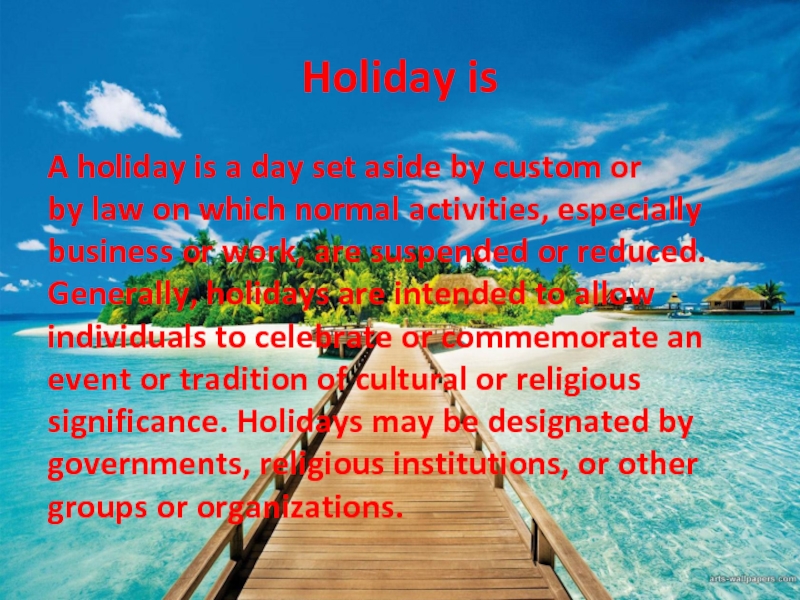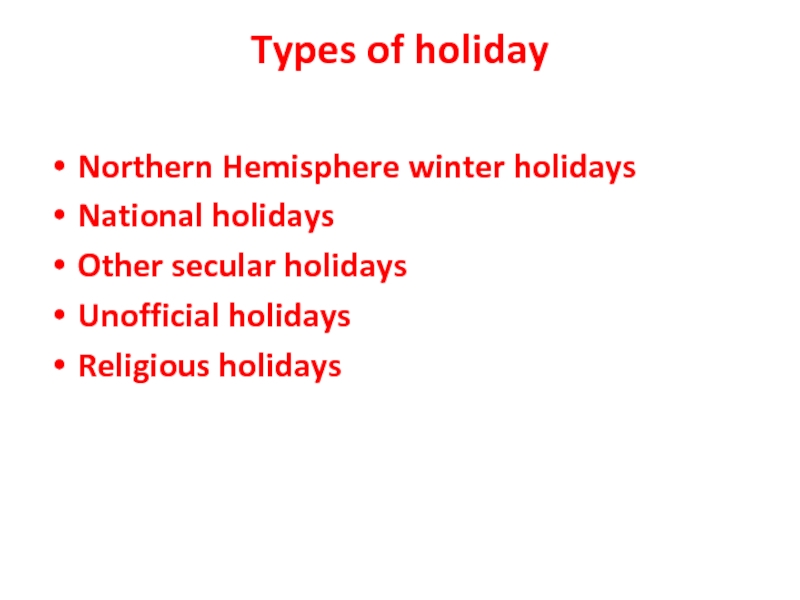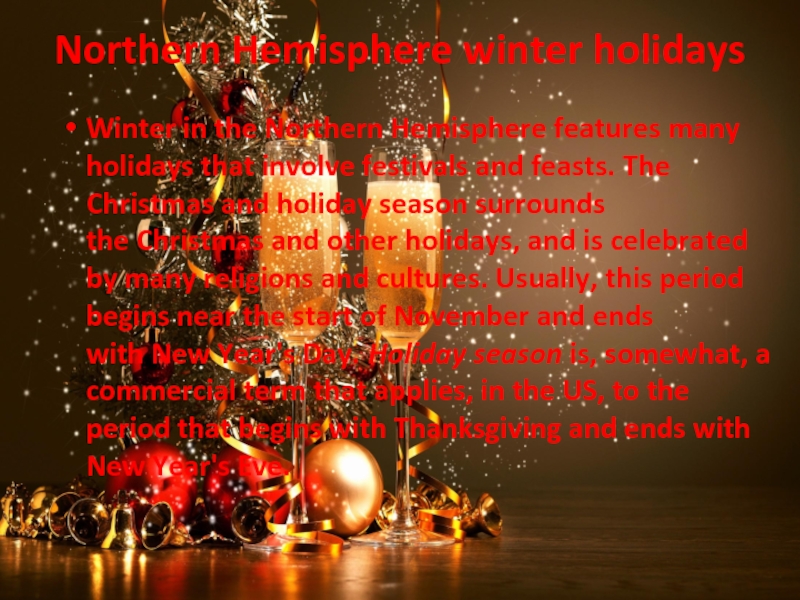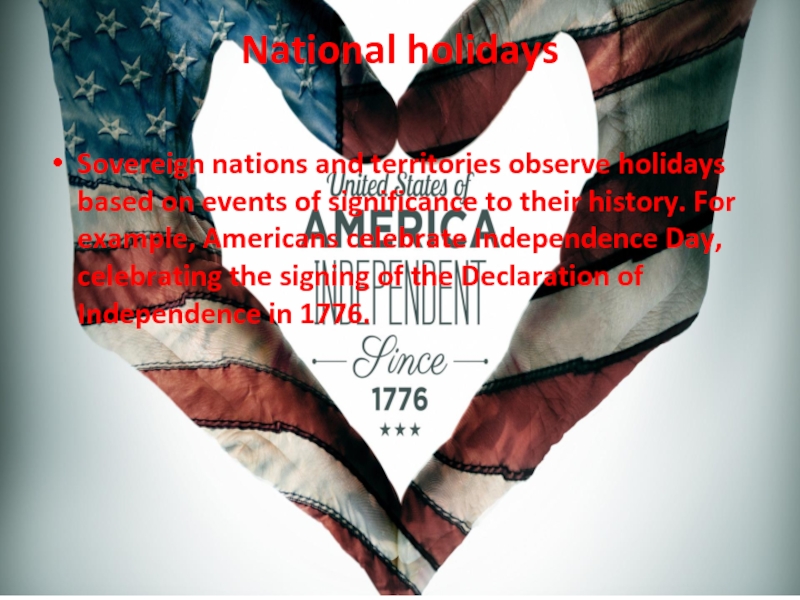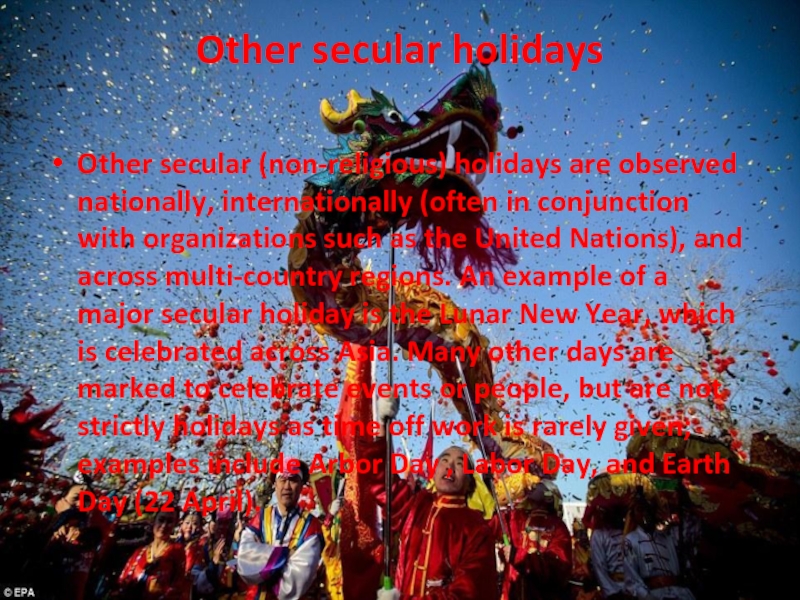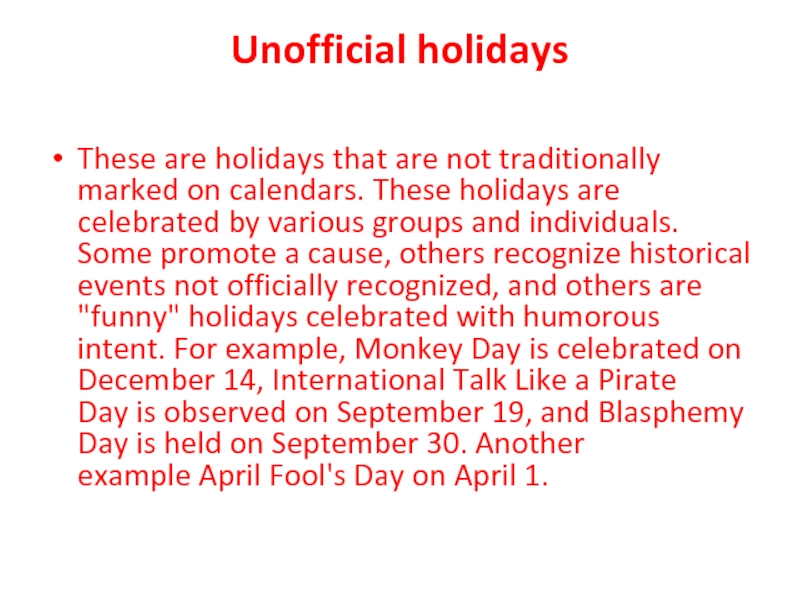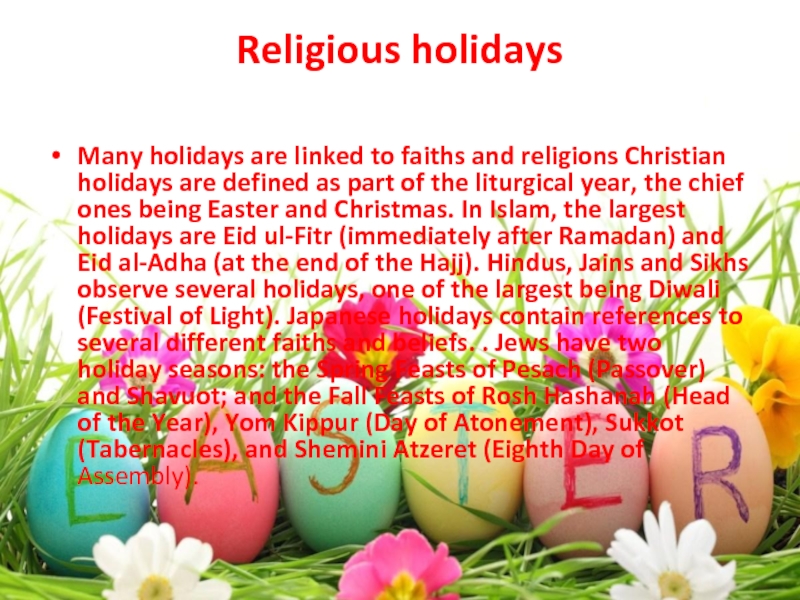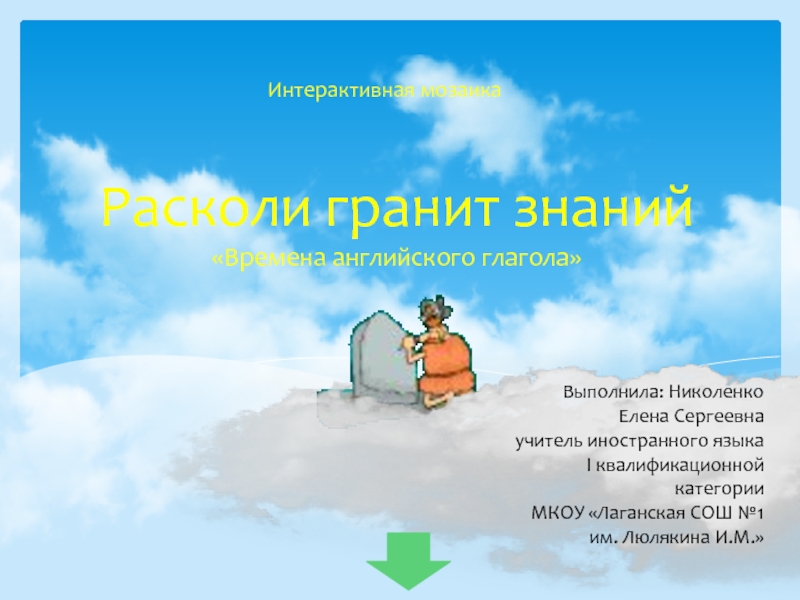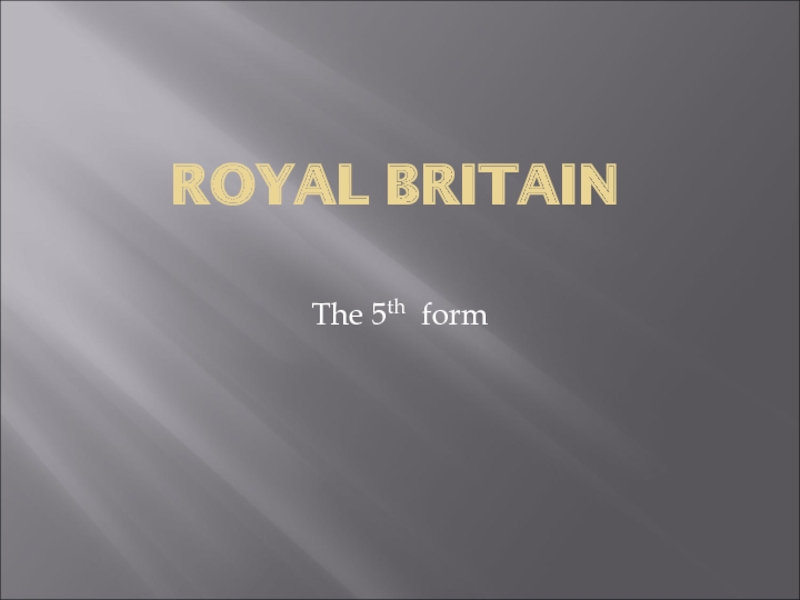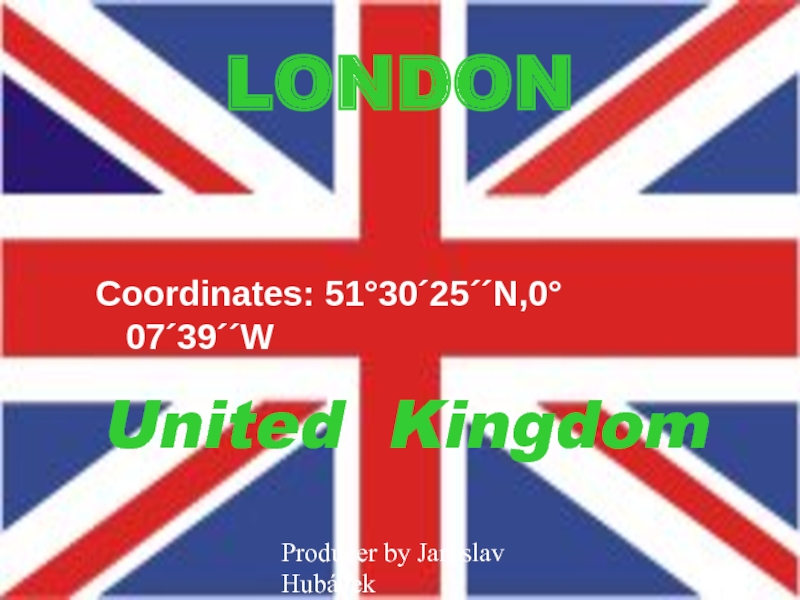Слайд 2Holiday is
A holiday is a day set aside by custom or by law on which normal
activities, especially business or work, are suspended or reduced. Generally,
holidays are intended to allow individuals to celebrate or commemorate an event or tradition of cultural or religious significance. Holidays may be designated by governments, religious institutions, or other groups or organizations.
Слайд 3Employers and educational institutes may designate ‘holidays’ themselves which may
or may not overlap nationally or culturally relevant dates, which
again comes under this connotation, but it is the first implication detailed that this article is concerned with.
Слайд 4Etymology
The word holiday comes from the Old English word hāligdæg (hālig "holy" + dæg "day"). The word originally referred only
to special religious days. In modern use, it means any
special day of rest or relaxation, as opposed to normal days away from work or school.
Слайд 5Types of holiday
Northern Hemisphere winter holidays
National holidays
Other secular holidays
Unofficial holidays
Religious
holidays
Слайд 6Northern Hemisphere winter holidays
Winter in the Northern Hemisphere features many holidays that
involve festivals and feasts. The Christmas and holiday season surrounds the Christmas and
other holidays, and is celebrated by many religions and cultures. Usually, this period begins near the start of November and ends with New Year's Day. Holiday season is, somewhat, a commercial term that applies, in the US, to the period that begins with Thanksgiving and ends with New Year's Eve.
Слайд 7National holidays
Sovereign nations and territories observe holidays based on events of
significance to their history. For example, Americans celebrate Independence Day, celebrating
the signing of the Declaration of Independence in 1776.
Слайд 8Other secular holidays
Other secular (non-religious) holidays are observed nationally, internationally
(often in conjunction with organizations such as the United Nations),
and across multi-country regions. An example of a major secular holiday is the Lunar New Year, which is celebrated across Asia. Many other days are marked to celebrate events or people, but are not strictly holidays as time off work is rarely given; examples include Arbor Day , Labor Day, and Earth Day (22 April).
Слайд 9Unofficial holidays
These are holidays that are not traditionally marked on
calendars. These holidays are celebrated by various groups and individuals.
Some promote a cause, others recognize historical events not officially recognized, and others are "funny" holidays celebrated with humorous intent. For example, Monkey Day is celebrated on December 14, International Talk Like a Pirate Day is observed on September 19, and Blasphemy Day is held on September 30. Another example April Fool's Day on April 1.
Слайд 10Religious holidays
Many holidays are linked to faiths and religions Christian
holidays are defined as part of the liturgical year, the
chief ones being Easter and Christmas. In Islam, the largest holidays are Eid ul-Fitr (immediately after Ramadan) and Eid al-Adha (at the end of the Hajj). Hindus, Jains and Sikhs observe several holidays, one of the largest being Diwali (Festival of Light). Japanese holidays contain references to several different faiths and beliefs. . Jews have two holiday seasons: the Spring Feasts of Pesach (Passover) and Shavuot; and the Fall Feasts of Rosh Hashanah (Head of the Year), Yom Kippur (Day of Atonement), Sukkot (Tabernacles), and Shemini Atzeret (Eighth Day of Assembly).

